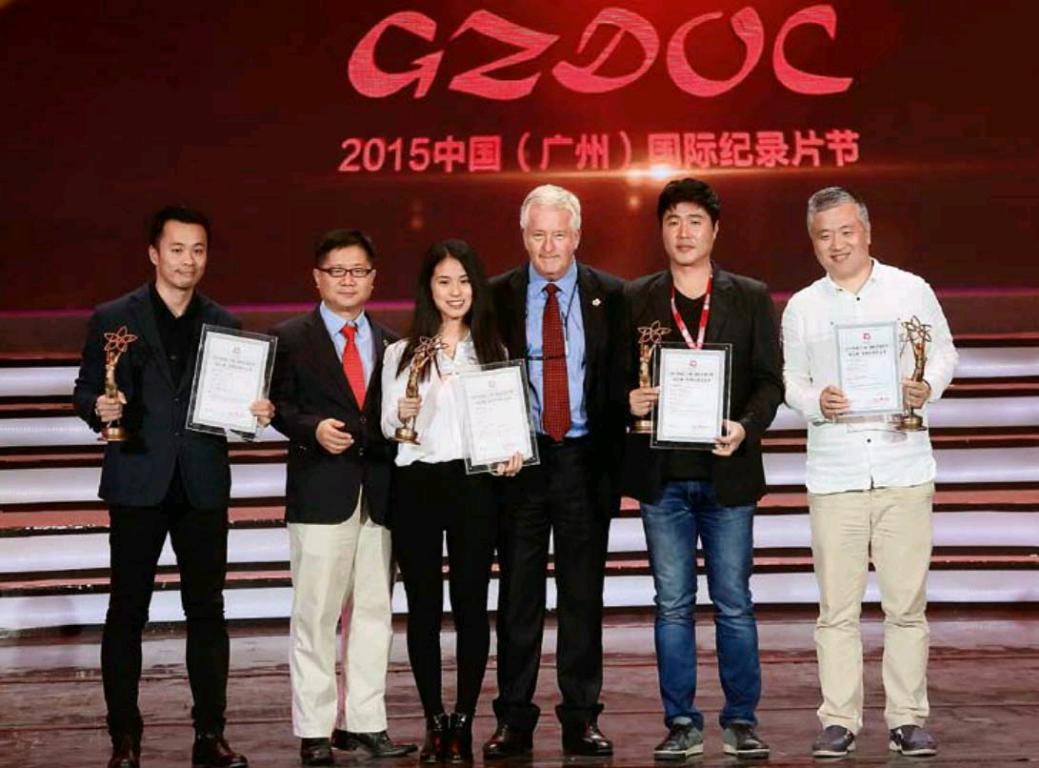Documentaries: Tapping the Market
2016-03-16byLiShaowei
by+Li+Shaowei
On December 8, 2015, Guangzhou, capital of Guangdong Province, welcomed the Guangzhou International Documentary Film Festival, China(GZDOC), which had 3,612 entries from 88 countries and regions for competition, screening, project pitching, and trade. The 2,264 documentaries vying for the Golden Kapok Award evidenced the festivals global influence. Of 17 Golden Kapok Award winners, 12 were China-made and two Sino-foreign collaborations.
In fact, documentaries have only carved out a small audience in China.“Only a tiny portion of people are interested,” asserts Tian Lei, who manages a Guangzhou-based online video platform.“Most documentaries dont make any money because less market power gets involved.”
The lack of market power starts with unenthusiastic investors. A 200,000-yuan budget for a single episode is rare, and many are completed with only 50,000 to 60,000 yuan, a pittance compared to the backing of many Western documentaries.
The numbers are no exaggeration. According to Nigel Marven, a noted British documentary filmmaker, his productions usually cost about £1.5 million – over 14 million yuan – for a single hour of content produced in partnership with the BBC.
Marven has focused such expensive documentaries on natural subjects, which has been untapped in China, mostly because of the market. “If you spend a million yuan on the production, youre going to be lucky to sell it for 1.2 million yuan,”notes Tian. “Its hard to find a place in the market because even if the broadcasters are interested, they have to think about who is going to pay for advertising.”
Another major reason for the dilemma is ignorance about documentariesentertainment potential. In China, most documentaries are massive programs with double-digit numbers of episodes that tend to be preachy, leaving little to lure either investors or spectators.
“Documentaries are supposed to be both educational and entertaining,” illustrates Marven, something he accomplished with Prehistoric Park and Sea Monsters. His work is starkly different from most Chinese productions, with characteristics of commercial films and variety shows that make them attractive to both young and old viewers.
Nevertheless, documentary commercialization has already begun in China. In May 2012, A Bite of China, a televi- sion series focused Chinese delicacies, was released to unprecedented popularity across its namesake country. The project didnt necessarily make piles of money, but it was a tremendous success at a grassroots level. A single episode of A Bite of China 2 cost over 1 million yuan, a milestone for Chinas documentary production scale.
“Even small in numbers, Chinas journey towards embracing documentaries about mainstream topics is underway,”declares Tian. This year, he brought his proposal for a movie to be titled The Film Empress of China to the GZDOC in hopes of receiving funding from the provincial government.
GZDOC established a Documentary Shop, where producers and investors can link up. The meetings have broadened the market by connecting China topics and Chinese producers with the international market while erecting bridges to capital and distribution.
A success story is Last Train Home, a recent Chinese documentary hit. Its filmmakers found investors at the 2007 GZDOC. Another is China Heavyweight, the first independent documentary made as a Sino-foreign joint project, which came to fruition after the involved parties met at GZDOCs Documentary Shop.
It is a superstore for foreign investors and a job fair for Chinese documentarians.“The world seems interested in subjects re- lated to China,” remarks Liu Jun, secretarygeneral of the general office of the GZDOC organizing committee. “GZDOC is providing an opportunity for collaboration between foreign documentary filmmakers and China, and gifting China and Guangzhou an opportunity to talk to the world.”
No one denies the massive potential of the Chinese market. In 2003, GZDOC, then known as Guangzhou International Seminar on TV Documentary, attracted about 30 documentary filmmakers from 17 countries. Last year, it hosted over 1,500 professionals from 88 countries. Every year now, the festival attracts participants from all around the world despite the fact that it charges a 1,000 yuan registration fee that does not include food or lodging.
Some Chinese professionals dont come for funding. They come only to learn from their distinguished international counterparts and seed cooperative opportunities.
Thirteen years have passed since the first event. Today, GZDOC is the top such festival in Asia, a platform to boost Chinas documentary development and turn over new pages of Chinese images in a major cultural sector.